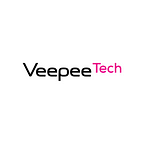What is your Data Literacy program?
Ever since I attended a Gartner session on Data Literacy, the concept has stuck in me. As transformational things sometimes are, it wasn’t something completely new, but rather i was reframing activities that we were already doing. I will tell you here, my perspective on the matter, what I am trying to implement and then it’s up to you to let me know about your experience.
Data and Languages
When we were presented with the concept, the speaker asked the audience, how many of us speak Data? Odd question, but a few raised their hand. Even more odd. I discovered in that session that there are plenty of similarities between Data and Languages. Without trying to paraphrase the great session, I will tell you my personal takeaways in this comparison and that will show how it helped me buy into the concept.
Vocabulary and Semantics
This is the easy one. Anyone working in Data has seen meetings go terribly wrong just because people are not using the appropriate vocabulary to express either their needs or their conclusion. Sometimes issues that can easily be resolved by putting some extra context in the conversation, and sometimes it goes deeper. An example that pops into my mind is when the team I joined in a project was struggling with some terrible double counting of their revenue, and how it had always been very complicated to resolve. The more I learnt about the problem, the more it became clear to me that they were adding up things that shouldn’t be added together, just because they gave it the same name to their KPI. To be more precise, in the royalties world, the revenue was going through stages, and if you focus on one KPI, let’s say Royalties Revenue, regardless of the stage you will have to untangle some double counting. Lucky for the project, we were building a fresh BI, and being able to redefine concepts.
Grammar
In comparison with Grammar, we could make the analogy that some data concepts need to be detailed in the right way to make real sense. For example, the way Business to BI talk data, is not the same as conversations between Data Engineers, and also different when Data Scientists join the chat. While we might agree on vocabulary, we see that to be clearly understood, it is important to organise your thoughts according to the context of your conversation. We often only try to translate to business users technical words, but actual adaptation of our data conversations always need some adjustments. In my experience, the lack of effort in this area brings confusion that sometimes leads to misjudgement in Data teams.
Continuous change
Last similarity I will raise here is the continuous evolution. First, we can easily say that as Data relies today heavily on technology, and technology is by definition a moving force, therefore so is Data. The words we use today are different from the ones a few years ago. It’s not only about the buzzwords that pop in now and then, but the actual new, or revamped, concepts that help us move data forward. Data Lake may be a buzzword, but in reality we can’t avoid the fact that it is as important a concept as Big Data. They change the way we work with Data.
Closer to home, we need to realise as we work on our KPIs we not only need to keep adjusting their formula but also their name, description and ensuring that the community is also evolving their vocabulary.
These are some of the key similarities that stuck with me.
Now, why is this important?
I believe that a successful Data Culture can only thrive, when everyone is speaking the same language. Even better when they can speak the various dialects present in the organisation. As language may be the mesh holding human cultures together, Data literacy is so for Data Culture within organisations.
What have I done since? First thing was to share it with my colleagues in Data, discuss and see what we could do to integrate activities and initiatives. As we were in the middle of reorganising the Data Department, it helped us for example to clarify the importance of the future Data Catalogue. It also helped formulate that we needed to organise training that would be appropriate to each user level, just as in language classes. We also identify that a pyramid scheme would help us trickle down information and evolution of concepts that would get translated at each level.
Lets implement
Today, the setting up of Data Literacy is part of my objectives, not only because it is important, but because I am convinced that it is a key component to our success. It groups together efforts on Data Catalog, knowing your Analysts community, Data on-boarding, trainings, internal meetups, and more.
Even if you deliver great BI content or Data Science projects, only Data Literacy will get everyone engaged and behind your data.
As the first benefit of a Data Literacy is to consolidate your Business Intelligence and Analytics in the organisation, I will finish this post with a quote from another great Data talk: “If you are not ready for BI, you are note ready for AI”. To be discussed next time.
What about you? Are you grouping the various Data Literacy activities you are leading under a common program or keeping initiatives separate?
________________________________________________________________
David Ureña works as Head of Data Analytics Strategy. He is passionate about Data Culture and helping people to get faster to their insight. Now working for the Data Organisation, his focus is to lead the Data Literacy program as well as the enterprise reporting deployment. He is particularly excited about our plans to transform the usage of Analytics at Veepee. Also looking at the performance and security and try to find solutions to do even better.
